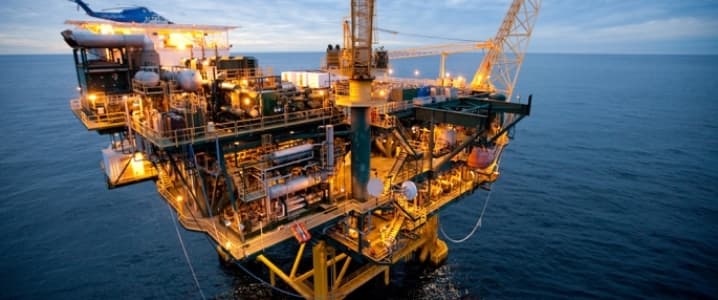When Mexico opened up its energy sector for private investors in August 2014, oil prices were hovering above the US$100 mark, and the big price crash had not started yet.
Two years later, in the ‘lower for longer’ price environment, Big Oil seems hesitant to jump on the joint-operating-agreement bandwagon with state-run company Petroleos Mexicanos, or Pemex, in the Trion field in the Perdido Fold Belt in the northwestern Gulf of Mexico just next to the U.S. border.
But it would take more than low oil prices - which have forced even supermajors to cut spending – to stay out of a joint venture with the Mexican company in such an oil-rich field; it would take Pemex.
Oil majors are put off over the uncertainty of the regulation of the joint operating agreement (JOA) with Pemex. They are put off by the foreseen exposure to greater potential environmental risks in the ultra-deep waters. They are put off by the notion of partnering with Pemex, who will have the larger decision-making role in such a venture, according to analyst opinions compiled by Bloomberg.
In June of this year, Pemex said that it had selected the Trion field for its maiden farm-out deal to other operators. Some US$11 billion in investment is required for exploration and exploitation, Pemex said upon announcing the call for bids for Trion, which is estimated to have the equivalent of 485 million barrels of oil equivalent.
The partners, which will be announced on December 5 this year, would be allowed to hold a stake of between 30 percent and 45 percent. A few days before the deadline for signing-up for the bidding, only Chevron Corp (NYSE:CVX), BP Plc (NYSE:BP) and Total SA (NYSE:TOT) had enrolled, according to Bloomberg.
Additional players have since joined the party, because Mexico’s National Hydrocarbons Commission, CNH, announced last Friday eight pre-qualified bidders: BHP Billiton (NYSE:BHP), BP, Chevron, Exxon Mobil (NYSE:XOM), Inpex Corporation, Mitsubishi Corporation, Shell (NYSE:RDS.A), and Total. Related: An OPEC Production Freeze Could See Oil Prices Rise To $60
Still, the companies’ presence in the pre-qualified bidders list does not necessarily mean that they will all be bidding, and indeed some may not, given the regulatory environment and the potential high risk of teaming up with a state-run Mexican company on Mexican territory in a venture governed by Mexican law.
“The JOA is much more conflict-ridden than it is cooperation-prone,” John Padilla, Managing Director of energy consulting firm IPD Latin America, said in a phone interview with Bloomberg.
What’s more, in case of an oil spill or other environmental disaster, the foreign operators will be taking on the burden, because the JOA potentially gives Pemex the option to cite ‘sovereign immunity’ and be absolved of responsibility, George Baker, analyst and publisher of Mexico Energy Intelligence, commented for Bloomberg.
Then there’s the technical aspect of drilling in ultra deep waters, adding to the regulatory headwinds for oil majors. Shell operates in fields on the U.S. side of the Perdido belt, and says that Perdido is moored in around 8,000 feet of water, which makes it the world’s deepest spar.
We’ll have to wait until the end of this year for the bidding, and a few more years after that to see whether Shell’s experience will give it an advantage over competitors in the bidding and the drilling. Or to see if any foreign operator will have advantage at all, because as regulation and risks stand now, Big Oil’s got more to lose than it would gain out of this Mexican deal.
This auction has surely not been the best Mexico has managed to put up for grabs. Its first-ever deepwater oil and gas tender for ten blocks in the Gulf of Mexico, expected to generate US$44 billion in proceeds, is enjoying much higher interest. The hydrocarbons commission has announced the names of the 26 companies short-listed to participate in the tender, including 16 firms that have been approved as operators and ten as potential partners in consortiums. This list is basically one of Who’s Who in Big Oil.
And it’s not surprising that the interest is much higher: in this auction, no one is bound to partner with Pemex.
By Tsvetana Paraskova for Oilprice.com
More Top Reads From Oilprice.com:
- How The Hanjin Bankruptcy Could Impact Oil Prices
- Biggest Draw In Crude Stocks This Century Sees Oil Prices Spike
- The Next Sector To Recover From The Oil Price Crash


















